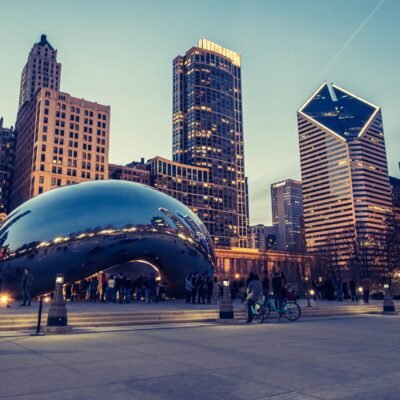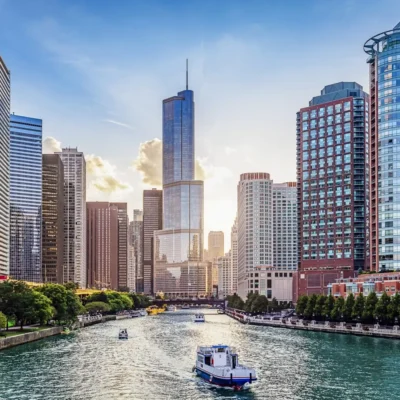David Hogg, a prominent gun control activist and survivor of the 2018 Parkland school shooting, has been elected as one of the vice chairs of the Democratic National Committee (DNC). At just 24 years old, Hogg’s appointment signals a strategic effort by the Democratic Party to appeal to younger voters and progressive activists. His election, alongside Pennsylvania State Representative Malcolm Kenyatta and Nevada labor leader Artie Blanco, is being viewed as a shift towards a more youth-driven and issue-focused political future.
From Tragedy to Activism
Hogg first rose to national prominence following the tragic shooting at Marjory Stoneman Douglas High School in Parkland, Florida, on February 14, 2018. The attack, which left 17 people dead, became a turning point in the national debate over gun control. Instead of remaining silent, Hogg and several of his classmates launched the “March for Our Lives” movement, advocating for stronger gun safety laws and policy changes to prevent future mass shootings.
His passionate speeches, media appearances, and direct confrontations with lawmakers quickly established him as one of the most recognized voices in the gun control movement. He co-founded “Never Again MSD,” an organization aimed at pushing for legislative reforms, and helped organize one of the largest youth-led protests in U.S. history, with millions marching across the country to demand action.
The Evolution of a Political Figure

Over the years, Hogg expanded his advocacy beyond gun control, addressing issues like voter turnout, economic inequality, and political corruption. In 2023, he launched a political action committee (PAC) called “Leaders We Deserve” to support young, progressive candidates running for office at the state and federal levels. His PAC aimed to elevate underrepresented voices and challenge the status quo within the Democratic Party.
In December 2024, Hogg announced his candidacy for a DNC vice-chair position, emphasizing the importance of reconnecting with young voters and working-class communities. His campaign message was clear: the Democratic Party needed to do a better job of engaging with people who felt ignored by traditional political structures. His approach included using social media as a primary tool to reach voters and highlight real-time concerns rather than relying solely on conventional campaign methods.
Winning the DNC Vice Chair Position
On February 1, 2025, Hogg was officially elected as a vice chair of the DNC during a leadership meeting held just outside Washington, D.C. His election came at a critical time for the Democratic Party, which had suffered major setbacks in the 2024 election cycle, including the return of Donald Trump to the presidency.
Many party insiders see Hogg’s appointment as a calculated move to energize younger voters, who played a crucial role in past Democratic victories but showed lower turnout in the last election. Hogg’s ability to mobilize Gen Z and Millennial voters is viewed as a key asset for the party’s future electoral strategies.
Supporters and Critics Weigh In
Hogg’s election was met with mixed reactions. Supporters praised his passion, activism, and ability to connect with younger generations. Democratic leaders hope he will bring fresh energy to the party and help reverse the trend of declining youth engagement in politics.
However, his appointment also sparked criticism. Some moderate Democrats worry that Hogg’s outspoken nature and progressive stance on issues like defunding the police and corporate influence in politics could alienate centrist and independent voters. Conservative critics have long accused him of being too radical, citing his strong anti-NRA rhetoric and social media confrontations with political opponents.
Even within the Parkland survivor community, there was division over his election. Fellow activist and former friend Cameron Kasky publicly mocked Hogg’s victory, calling him an “opportunist” who had lost touch with the movement’s original goals. This highlights the ongoing debate over whether political activism should transition into formal political roles or remain independent of party structures.
Hogg’s Vision for the Democratic Party
As a newly elected vice chair, Hogg has laid out a strategic vision for the Democratic Party, focusing on three key areas:
- Youth Engagement: Hogg plans to use his platform to encourage young people to vote and participate in political activism. He has criticized the party’s past failure to effectively communicate with younger generations and wants to see more direct engagement through digital platforms and grassroots movements.
- Authentic Messaging: He believes the Democratic Party must move away from scripted political speeches and embrace more relatable, unscripted communication. He often points to figures like Representative Alexandria Ocasio-Cortez, who effectively uses social media to connect with voters.
- Economic and Social Justice: Hogg has emphasized the need for policies that address income inequality, affordable healthcare, and corporate accountability. He argues that many working-class voters feel abandoned by both major political parties and sees this as an opportunity for Democrats to rebuild trust.
Challenges Ahead
While Hogg brings energy and a fresh perspective to the DNC, he faces significant challenges. The party remains deeply divided between progressives who want bold policy changes and moderates who believe a centrist approach is necessary to win elections. Balancing these competing interests while staying true to his activist roots will be a test of his political skills.
Additionally, Hogg will need to navigate the institutional structures of the DNC, which often move at a slower pace than grassroots activism. Unlike social movements that thrive on rapid response and public demonstrations, party leadership requires negotiation, compromise, and long-term strategy.
His ability to transition from activist to party leader will depend on how effectively he can work within the existing political framework while pushing for meaningful change.
Conclusion
David Hogg’s rise from gun control activist to DNC vice chair is a testament to the power of youth-led movements in shaping the future of American politics. Whether he becomes a unifying force for the Democratic Party or a polarizing figure remains to be seen. However, one thing is clear: Hogg’s presence in the DNC signals a shift towards a more youth-focused, issue-driven approach to politics.
As he steps into this leadership role, the Democratic Party faces critical decisions about its identity and strategy moving forward. With Hogg’s influence, the party has the opportunity to re-engage younger voters, embrace a more digital-first approach, and redefine its messaging in an era of political uncertainty. Whether his activism translates into effective political leadership will be a defining storyline in the coming years.





